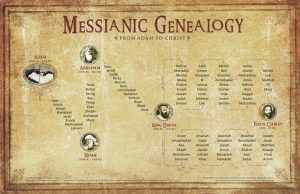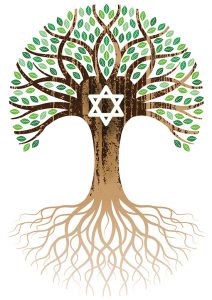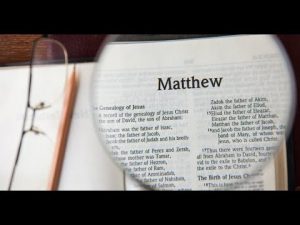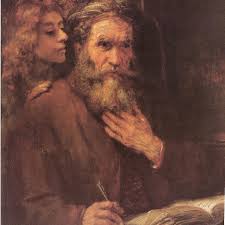
Shownotes
Wisdom-Trek / Creating a Legacy
Welcome to Day 1281 of our Wisdom-Trek, and thank you for joining me.
I am Guthrie Chamberlain, Your Guide to Wisdom
Mastering the Bible – Genealogies – Worldview Wednesday

Wisdom – the final frontier to true knowledge. Welcome to Wisdom-Trek where our mission is to create a legacy of wisdom, to seek out discernment and insights, and to boldly grow where few have chosen to grow before.
Hello, my friend, I am Guthrie Chamberlain, your captain on our journey to increase wisdom and create a living legacy. Thank you for joining us today as we explore wisdom on our 2nd millennium of podcasts. This is Day 1281 of our trek, and it is Worldview Wednesday. Creating a Biblical Worldview is important to have a proper perspective on today’s current events.
To establish a Biblical Worldview, you must also have a proper understanding of God and His Word. Our focus for the next several months on Worldview Wednesday is Mastering the Bible through a series of brief insights. These insights are extracted from a book of the same title from one of today’s most prominent Hebrew Scholars, Dr. Micheal S. Heiser. This book is a collection of insights designed to help you understand the Bible better. When we let the Bible be what it is, we can understand it as the original readers did, and as its writers intended. Each week we will explore two insights.
Mastering the Bible – Genealogies
Insight Twenty-Three: Old Testament Genealogies Were Not Intended to Be Precise Indicators of the Age of the Earth

The genealogies of Genesis 5 are significant for understanding the Old Testament, but not in the way they are often referenced.
Since the seventeenth century, Bible readers have presumed that the genealogies of the Old Testament were written to provide a chronology for the history of the world. That notion was popularized in 1650 with the publication of Bishop James Ussher’s “Annals of the Old Testament, deduced from the first origins of the world”— Ussher’s chronology used the genealogies to date the creation of the world to October 23, 4004 BC.
There are many problems with Ussher’s chronology. It would, for example, put the flood at the time of the building of the Great Pyramid at Giza. Even if the flood was a regional and not a global event, it would have made the construction of this pyramid unworkable due to its proximity to the Nile and the Nile Delta. Egyptian records prior to and after the Great Pyramid’s construction say nothing about a great flood during this time.
However, the real problems with Ussher’s work are biblical. Ussher was unaware of certain things that are common knowledge in biblical scholarship today. For example, manuscripts of the Hebrew Bible do not all agree when it comes to the genealogical sequence or year numbers of the pre-flood individuals listed in Genesis 5. The sequence of the generations in Genesis 4 and 5 is also not identical. This has led scholars over the years to propose that the genealogies are selective, which is obvious from the genealogies of Jesus in the New Testament.
While gaps are possible, there are other issues that speak to a deliberate construction of the genealogies. Several scholars have proposed that the year numbers in Genesis 5 have a mathematical explanation—in effect, a cipher or code—meant to telegraph information about the individuals in the list. However, none of the proposals has won a consensus of acceptance. Another approach has observed that genealogies from contemporary literature follow a pattern evident in Genesis 5. Specifically, several genealogies from the Old Babylonian period arrange names by tens even when the results do not account for people known from other sources to have lived in the same periods. In Genesis 5, there are ten generations before the flood, and ten after the flood. The listing may, therefore, be selective.
In any event, though the precise reason for the genealogical structure may not be conclusively understood, we must avoid interpreting them outside their ancient context. Forcing them into a service for which they were not intended isn’t good interpretation.
Insight Twenty-Three: The Covenant Sign of Circumcision Was Theological Statement for Israelite Men and Women

The story of Abraham and Sarah is at the core of the story of Israel. God called Abraham in Genesis 12:1, “The Lord had said to Abram, “Leave your native country, your relatives, and your father’s family, and go to the land that I will show you.” In Genesis 15:1-6, God told him that he would make his offspring like the sand of the sea and the stars of the sky. There was just one problem. Abraham and his wife were old.
Sarah, in fact, was well past child-bearing age and did not conceive a child for several years after God’s initial promise. Her inability to conceive led to Sarah’s proposal that Abraham have children with her handmaid, Hagar. The result was the birth of Ishmael, whom God told Abraham in no uncertain terms was not the fulfillment of his original promise. God would enable Sarah to have a child.
God, of course, kept his promise. Abraham and Sarah had Isaac. God stepped in and made it clear to both Abraham and Sarah that Ishmael was not the fulfillment of his promise. Sarah was the mother God intended for the promised child. To commemorate that miracle, God gave them both a recurring sign of his covenant faithfulness: circumcision, as told in Genesis 17:1-14.

The sign of the covenant meant that every male in Abraham’s household had to be circumcised. The requirement extended to all males born to every family in the nation of Israel because all Israelites were descendants of Abraham through Isaac.
Circumcision seems like an odd sign, not only because of the physical nature of the mark, but also because it seems so one-sided. Of what possible relevance could circumcision have for Israelite women? What’s the point in the first place?
Because of the sexual nature of the sign of circumcision, the ritual mark was an important theological reminder to both genders. The sign would have taken the mind of both men and women back to the fact that they and their children only existed because of divine intervention.
Women would also be reminded of the importance of having husbands who were members of the Israelite community to pass on the bloodline of Abraham, Isaac, and Jacob. Bearing children to gentile men in Old Testament times would have been a covenant transgression unless the man joined the people of Israel (which required circumcision).
As unusual as the sign of circumcision seems to us today, it was a theological statement in its time. This is one important role of ritual, to transport and then fix the mind to a transcendent idea.
That will conclude this week’s lesson on another two insights from Dr. Heiser’s book “Mastering the Bible.” Next Worldview Wednesday, we will continue with two additional insights. I believe you will find each Worldview Wednesday an interesting topic to consider as we build our Biblical worldview.
Tomorrow we will continue with our 3-minute Humor nugget that will provide you with a bit of cheer and help you to lighten up and live a rich and satisfying life. So encourage your friends and family to join us and then come along with us tomorrow for another day of our Wisdom-Trek, Creating a Legacy.

If you would like to listen to any of our past 1280 treks or read the Wisdom Journal, they are available at Wisdom-Trek.com. I encourage you to subscribe to Wisdom-Trek on your favorite podcast player so that each day’s trek will be downloaded automatically.
Thank you for allowing me to be your guide, mentor, and most importantly, your friend as I serve you through the Wisdom-Trek podcast and journal.
As we take this trek together, let us always:
- Live Abundantly (Fully)
- Love Unconditionally
- Listen Intentionally
- Learn Continuously
- Lend to others Generously
- Lead with Integrity
- Leave a Living Legacy Each Day
I am Guthrie Chamberlain reminding you to Keep Moving Forward, Enjoy Your Journey, and Create a Great Day Everyday! See you tomorrow!